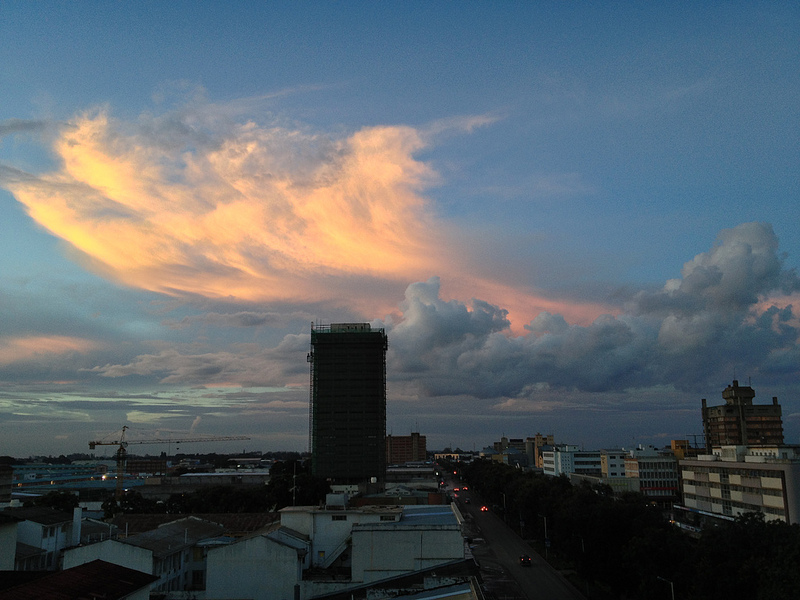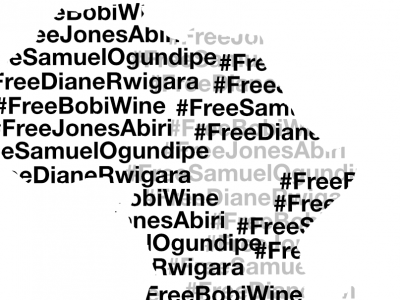Zambian police forces say they will employ “international legal provisions” to take into custody the operators of citizen news websites that authorities claim are threatening the security of the state.
The terse statement was issued a few hours after independent news site the Zambian Watchdog published a draft constitution that the government has written but neglected to release to the public. This violates the Terms of Reference of the Constitution Technical Committee which was appointed shortly after President Michael Sata’s Patriotic Front (PF) won the 2011 elections.
The statement issued by the police public relations unit and reported by Zambia Reports reads:
Unfortunately, some unscrupulous people have taken advantage of the cyberspace to commit crimes on the internet through defamatory comments and remarks posted on websites especially through the electronic media in the name of press freedom which end up infringing a number of state security provisions.
As such, the Police shall employ local, regional and international legal provisions to pursue the authors and publishers of such criminal, libelous, defamatory, treasonous and seditious statements and bring them to book.
Echoing recent words of Minister of Information and Broadcasting Mwansa Kapeya, who spoke of the government unmasking the identities of people behind certain citizen news websites, the police statement added:
So far, other investigations into the identities of the perpetrators of such crimes are underway and we shall expose all the people involved in these malicious and borderline treacherous activities hiding behind the anonymity of the internet.
Kapeya, a former broadcaster himself, was quoted saying:
We are concerned about some of the news that is being published by online publication most of it amounts to abuse of the social media. A lot of things are said about government officials and the President without [them being] given a chance to respond.
Another minister, Yamfwa Mukanga, in charge of communication, recently said the government was working on a law to regulate online media and hold “them” (websites and services) accountable for their actions:
We have to find a way of controlling them because they are tarnishing the image of our country. Of late, we have seen a lot of things published by online media that are [e]very negative because they publish anything.
The Zambian Watchdog reported that the government was secretly working on a law that would criminalize the act of reading the Zambian Watchdog and other similar sites. Quoting a government source, the Watchdog reported:
The Watchdog is just too advanced for the PF and because of the huge costs involved in blocking it, government now wants to pass a law in the next parliament to criminalise whoever accesses or contributes to the site because by then all data of the sim card will already have been captured. They want the attorney general to complain on behalf of the government and then later it will go to cabinet.
Commenting under the story, Watchdog reader Czar said [Watchdog comments do not have permalinks]:
That “law” is meant to scare semi illiterates. Will Sata and his gang manage to monitor every device that is used to browse the Internet. Don’t they know that you can browse anonymously using a proxy? If China has failed to do this, how will Sata and his gang succeed. Don’t they have better things to do?
Observers widely suspect that the Zambian government has been trying to shut down critical news websites such as the Zambian Watchdog and Zambia Reports for over a year. This isn't the first time government officials have spoken dismissively of the Watchdog — in July, Vice President Guy Scott said he would “celebrate” if the Watchdog were shut down. In separate statements, the government has also threatened to close down social media sites such as Facebook and Twitter.





5 comments
Michael Sata who has recently been quoted saying that he was a ward chairman, Lusaka governor, deputy minister, Minister of health and Minister without Portifolio among other things which he might well have been as we all know He should know better by now as President that Zambia has not developed because his predecessors concentrated on wrong priorities. We would expect him with all that experience to make a difference. I believe that’s why the Zambian people got him into office. He is the last of the ‘old guards’ left to prove that they are still relevant in this modern world of which internet and social networking site are really a norm. Concentrate on why you allowed the draft constitution to leak out because this leakage is a reflection on how your government is not safe to be entrusted with the security of the country rather than a fault of the ZWD.
This is a treasonable offence you government has committed to allow the leakage. It is a recipe for a revolution by we all young stars who Kaunda educated that lie in wait to make a difference.